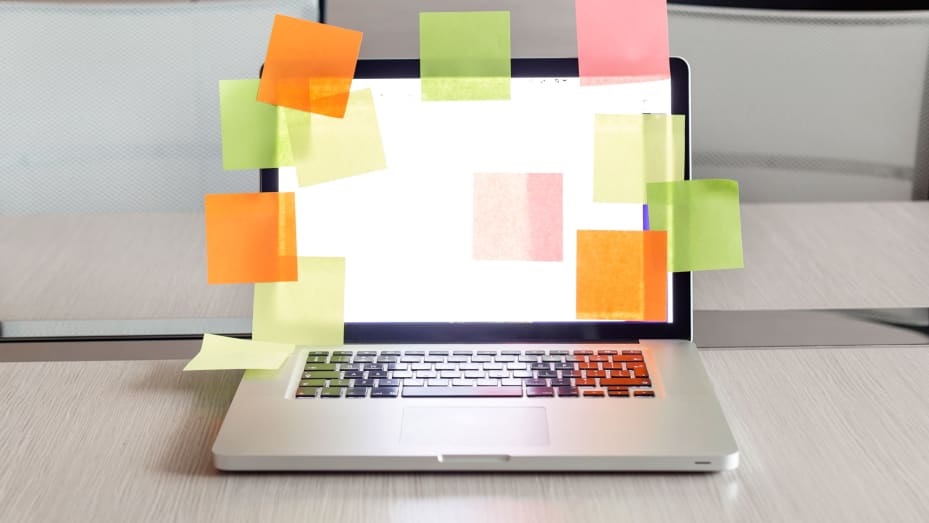Memory, the cornerstone of human cognition, plays a pivotal role in our personal and professional lives. From remembering crucial facts and figures for an important presentation to effortlessly recalling the names of acquaintances at social gatherings, a sharp memory empowers us in numerous ways.
In this fast-paced world where information overload is the norm, the ability to absorb and retain key information with ease is a coveted skill. In this article, we delve into the fascinating realm of memory enhancement, providing practical strategies to unlock your memory potential and become a master of retention.
Whether you’re a student seeking to ace exams or a professional aiming to impress with your encyclopedic knowledge, these techniques will help you remember important information more efficiently and effectively. We will also explore some text summarization tools for memory enhancement.
So, get ready to embark on a journey of cognitive empowerment as we explore the secrets to improving your memory prowess.
Challenging the Myth of Bad Memory
In the tapestry of human experience, memory plays an integral role in shaping our identities and interactions. Yet, for many, the notion of possessing a “bad memory” has become an ingrained belief, an accepted limitation that hampers their ability to retain and recall information. However, it is time to challenge this prevailing myth and unravel the truth behind forgetfulness.
By challenging the myth of bad memory, we shift the narrative from one of deficiency to one of understanding and acceptance. Instead of succumbing to self-criticism and frustration, we can embrace the variability of memory performance and acknowledge its inherent limitations. Recognizing the individual differences in memory abilities allows for a more compassionate and inclusive perspective.
Contrary to popular belief, a so-called “bad memory” is not an inherent flaw in one’s cognitive abilities. Rather, it is a complex interplay of various factors that influence our ability to remember. Our memory’s reliability can be influenced by attention, focus, stress levels, and even the context in which information is encountered. External factors, such as distractions or lack of interest, can also contribute to forgetfulness.
Furthermore, the perception of a bad memory is often shaped by societal expectations and comparisons. In a world that values rapid information retrieval and quick recall, those who struggle with memory may feel inadequate. The pressure to measure up to an idealized standard of memory prowess can exacerbate feelings of self-doubt and perpetuate the myth of a faulty memory.
Lastly, memory is not a fixed entity. It is malleable, susceptible to influences and changes over time. Our memories are not perfect replicas of past events but rather reconstructed interpretations, influenced by our emotions, biases, and subsequent experiences. The fallibility of memory is a universal characteristic, reminding us of the intricate nature of human cognition.
Understanding The Human Memory
In the intricate labyrinth of the human mind, memory serves as the foundation upon which our experiences and knowledge are built. To navigate this terrain effectively, it is crucial to grasp the fundamentals of how memory operates.
Memory is a multifaceted process, comprising various stages and intricate neural networks. At its core, memory can be categorized into two main types: short-term memory and long-term memory.
Short-term memory, as the name suggests, is responsible for holding information temporarily, allowing us to perform immediate tasks. It has a limited capacity and fades relatively quickly if not transferred to long-term memory.
On the other hand, long-term memory is the repository of our accumulated knowledge and experiences, capable of storing information for extended periods.
Understanding the mechanics of memory is like unraveling the threads of a complex tapestry. It involves a dance between attention and encoding—the process by which information is transformed into a format suitable for storage.
While memory is often perceived as a passive recorder of information, recent research suggests otherwise. The act of retrieval, or recalling information from memory, plays a vital role in strengthening and solidifying memory traces. This phenomenon, known as retrieval practice, involves actively retrieving information from long-term memory, reinforcing neural connections and enhancing memory recall.
Benefits of Memorization
First and foremost, the ability to memorize key information cultivates a sense of mastery and self-confidence. Whether it’s recalling historical dates, scientific concepts, or the details of a business proposal, a well-honed memory empowers individuals to engage in conversations with authority and clarity. Memorization allows us to fluently communicate our ideas, impressing others with our depth of knowledge and leaving a lasting impression.
Moreover, the act of memorization fosters cognitive agility and mental dexterity. As we challenge our brains to encode and retain information, neural connections strengthen, creating a cognitive reserve that can be tapped into for future learning. Like a well-trained muscle, an exercised memory becomes sharper and more resilient, capable of effortlessly absorbing new knowledge and making connections between disparate pieces of information.
Beyond the realms of academia and professional pursuits, memorization has profound implications for personal growth and enrichment. By committing poetry, literary passages, or philosophical ideas to memory, we internalize these timeless works of human creativity. The words and ideas become ingrained in our consciousness, shaping our perspectives and enriching our inner world. Memorization becomes an act of communion with the great minds that have shaped our collective intellectual heritage.
Furthermore, the benefits of memorization extend beyond the individual level. In social settings, a well-memorized repertoire of anecdotes, quotes, and relevant information can transform us into captivating storytellers and engaging conversationalists. It fosters deeper connections with others, as we demonstrate our genuine interest and investment in the exchange of ideas. Memorization becomes a tool for building rapport, establishing trust, and leaving a lasting positive impression.
Lastly, in an era of constant distraction and information overload, the ability to recall key information from memory provides a respite from the digital noise. By relying on our internal mental library, we cultivate focus and concentration, immersing ourselves in the richness of the present moment. In a world where attention is a scarce resource, a well-trained memory enables us to navigate complex tasks with ease, enhancing our productivity and overall cognitive performance.
Strategies And Tools For Effective Memorization
Here are five strategies and tools for effective memorization, including Resoomer as one of the tools:
Active Engagement: Actively engage with the information you want to remember. Take notes, ask questions, and try to relate the new information to your existing knowledge. By actively processing and connecting the material, you create stronger memory traces.
Visualization and Association: Create vivid mental images or associations to link new information with familiar concepts. Visualization helps make the information more memorable and easier to recall later.
Chunking: Break down complex information into smaller, manageable chunks. Organizing information into meaningful groups can enhance memory retention and retrieval.
Practice Retrieval: Regularly practice retrieving information from memory. Use flashcards, practice quizzes, or self-testing to actively recall and reinforce what you’ve learned. Retrieval practice strengthens memory pathways and improves long-term retention.
Mnemonics: Mnemonic techniques, such as acronyms, acrostics, or creating memorable stories, can help you remember complex or abstract information. These memory aids provide a structured framework for encoding and retrieval.
Resoomer (Text Summarizer): Resoomer can be a useful tool for condensing and summarizing lengthy texts, allowing you to focus on the essential information. By generating concise summaries, Resoomer helps you quickly grasp key points and facilitates effective memorization.
Summary
In conclusion, the belief in a “bad memory” is a myth that undermines our potential to improve our memory skills. Memory is a malleable cognitive function that can be enhanced through active engagement, visualization, chunking, retrieval practice, and using tools like resoomer – (summarization tool) for condescending lengthy and complex subjects
By employing these strategies and understanding that memory is a skill to be cultivated, we can unlock our full memorization abilities and achieve greater success in learning and retaining information. Embrace the power of effective memory techniques and unleash your cognitive potential.







